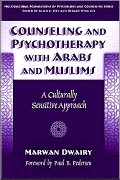 Der israelisch-arabische Psychologe Marwan Dwairy wurde von einer Expertenrunde an der New Yorker Columbia Universität zu den zehn welweit bedeutendsten Wissenschaftlern seines Fachgebiets gewählt. Seine Forschungen im Bereich der interkulturellen Psychologie seien gerade heute von unschätzbarem Wert.
Der israelisch-arabische Psychologe Marwan Dwairy wurde von einer Expertenrunde an der New Yorker Columbia Universität zu den zehn welweit bedeutendsten Wissenschaftlern seines Fachgebiets gewählt. Seine Forschungen im Bereich der interkulturellen Psychologie seien gerade heute von unschätzbarem Wert.
Dwairy, der 1999 in Nazrath das erste psychologische Zentrum für israelische Araber eröffnete, lehrt heute an der Akademischen Hochschule Emek Jesreel in Galiläa: „Es war wirklich eine erfreuliche Überraschung für mich, meinen Namen unter den zehn wichtigsten Forschern zu finden“, sagte der Wissenschaftler laut der israelischen Tageszeitung M’ariw.
Die interkulturelle Psychologie befasst sich u.a. mit der Frage, wie Psychologie in den einzelnen Kulturen angewandt wird. Dwairy passe zahlreiche psychologische Tests auf die arabische Mentalität an. „Die Psychologie ist im Westen entstanden“, so Dwairy. „Es ist nicht natürlich und selbstverständlich, dass sie in unterschiedlichen Regionen und Kulturen genau gleich angewandt wird. Zum Beispiel wird die im Westen weit verbreitete Weltanschauung, nach der sich der Mensch selbst verwirklichen muss, in unterschiedlichen Kulturen nicht als unbedingt wichtig oder wahrhaftig aufgefasst. Es gibt durchaus auch Gesellschaften in denn die Treue zum Stamm, zur Familie oder zur Gesellschaft wichtiger ist als die persönliche Entwicklung“.
http://astore.amazon.de/buchundjudenhaga/detail/0807747009
Advances in Psychology and Mental Health
The long shadow of September 11 has awakened a widespread desire to understand more about Arab and Islamic cultures. As an Arab who learned western psychology, Marwan Dwairy has first-hand experience with the dilemmas involved in adapting western psychotherapy to the needs of Arab and Muslim clients. Drawing from his 25 years of clinical and educational experience, this original volume will help to deepen knowledge and avoid stereotyping among counselors, therapists, social workers, and other mental health professionals.The book features: a presentation of Arab and Muslim history, peoples, and cultures, including the education and socialization of their children; systematic revision of the approaches involved in child development, personality, psychodiagnosis, psychopathology, and psychotherapy, with direction for when and how to apply each intervention approach; innovative techniques and models of diagnosis and intervention specifically designed for Arab and Muslim clients, such as using the physical environment as a diagnostic and therapeutic tool and using metaphoric and indirect intervention methods; and, two chapters contributed by Khawla Abu-Baker, the first PhD family therapist among Palestinians in Israel, address Arab families in the United States and family therapy with Arab and Muslim women.
siehe auch http://books.google.com
Cross-Cultural Counseling:
The Arab-Palestinian Case
(Advances in Psychology and Mental Health)



Leserbriefe